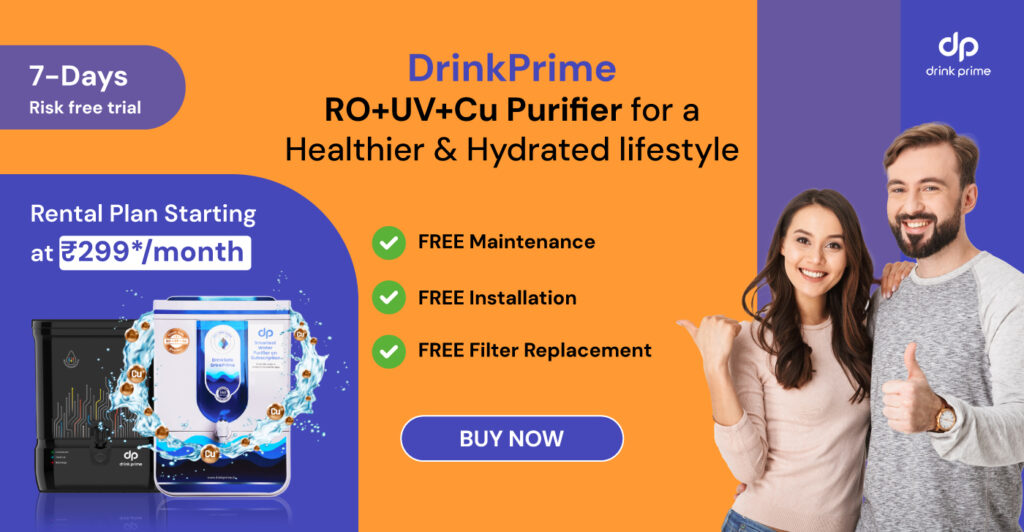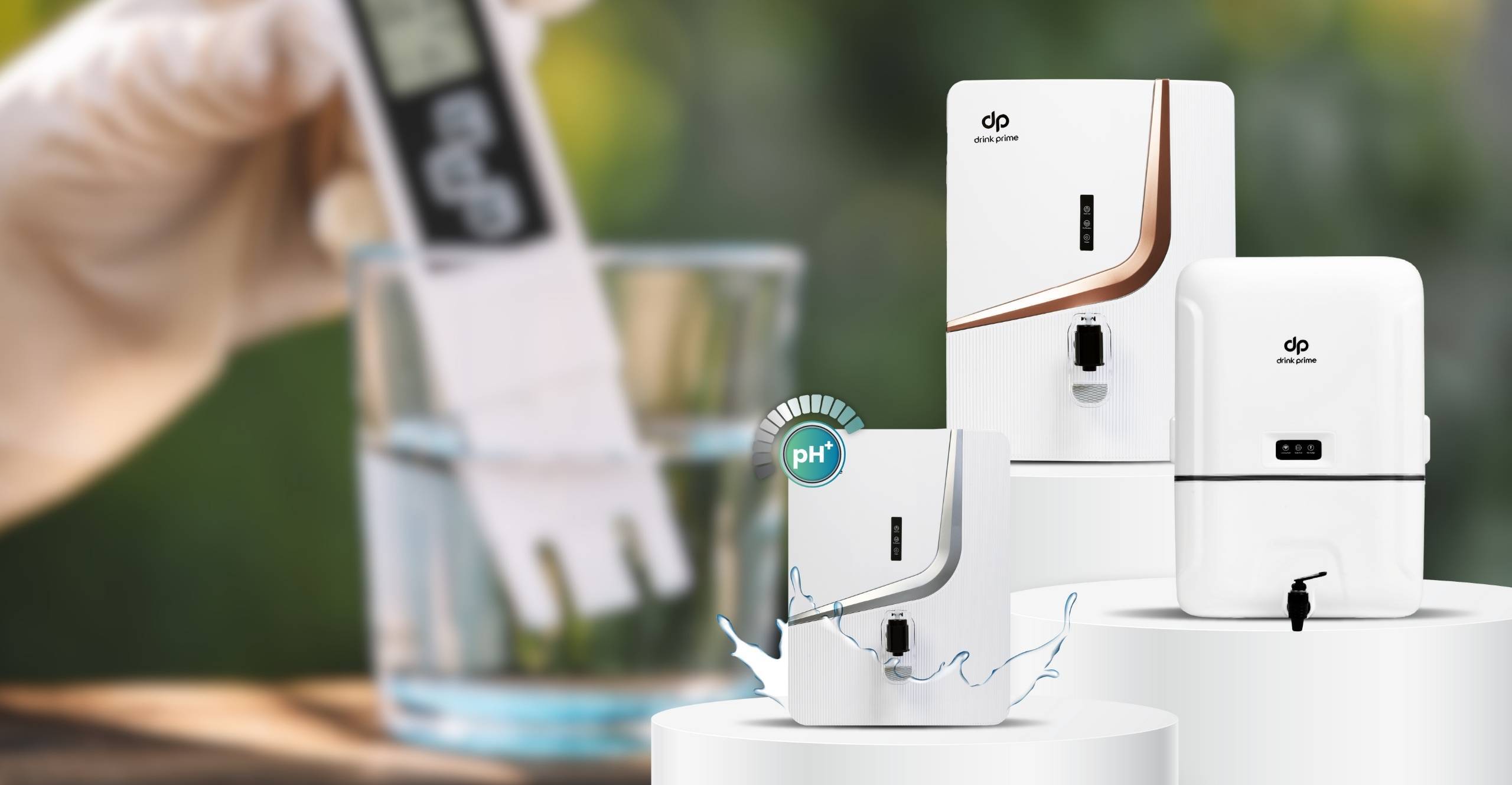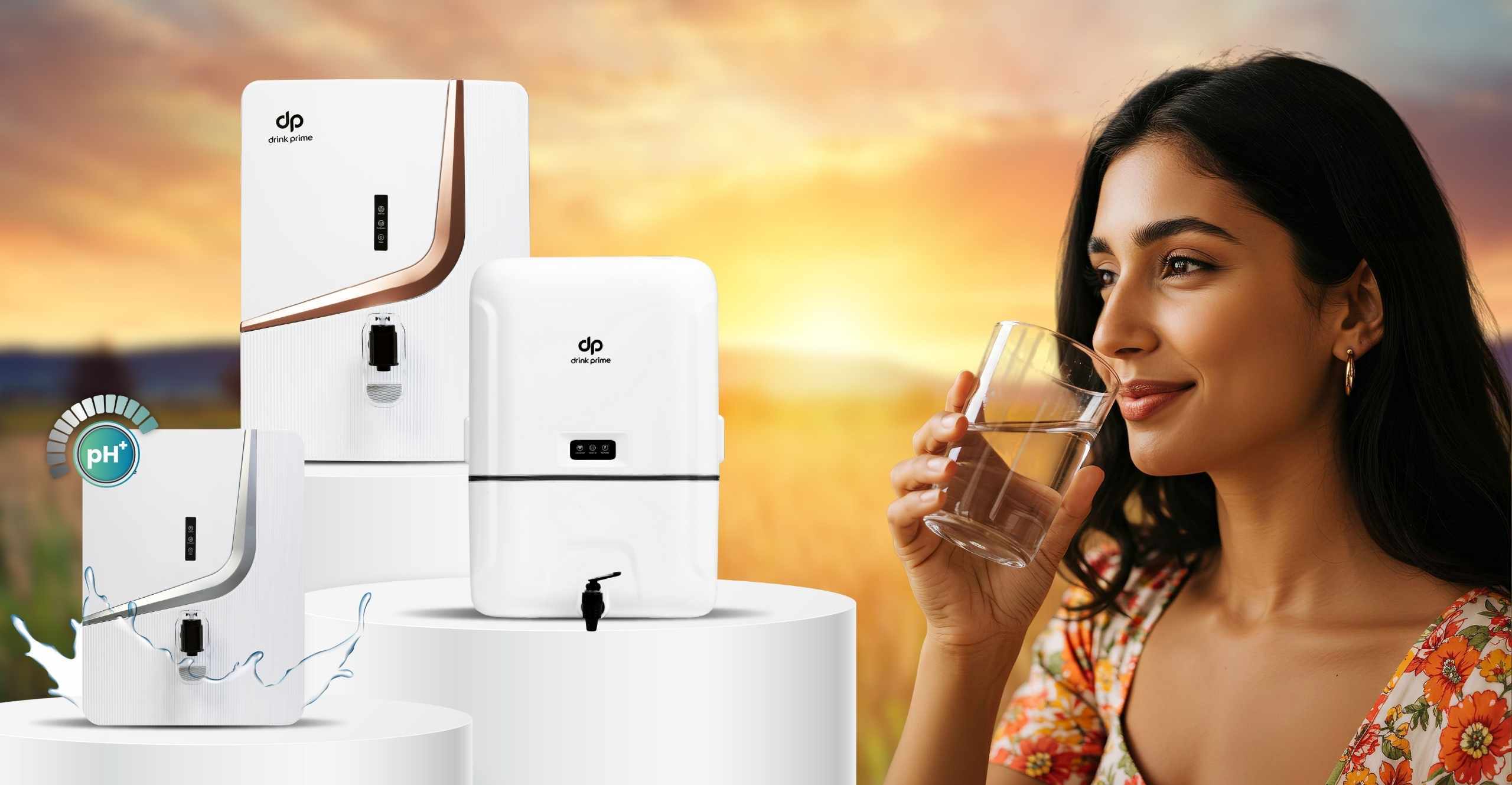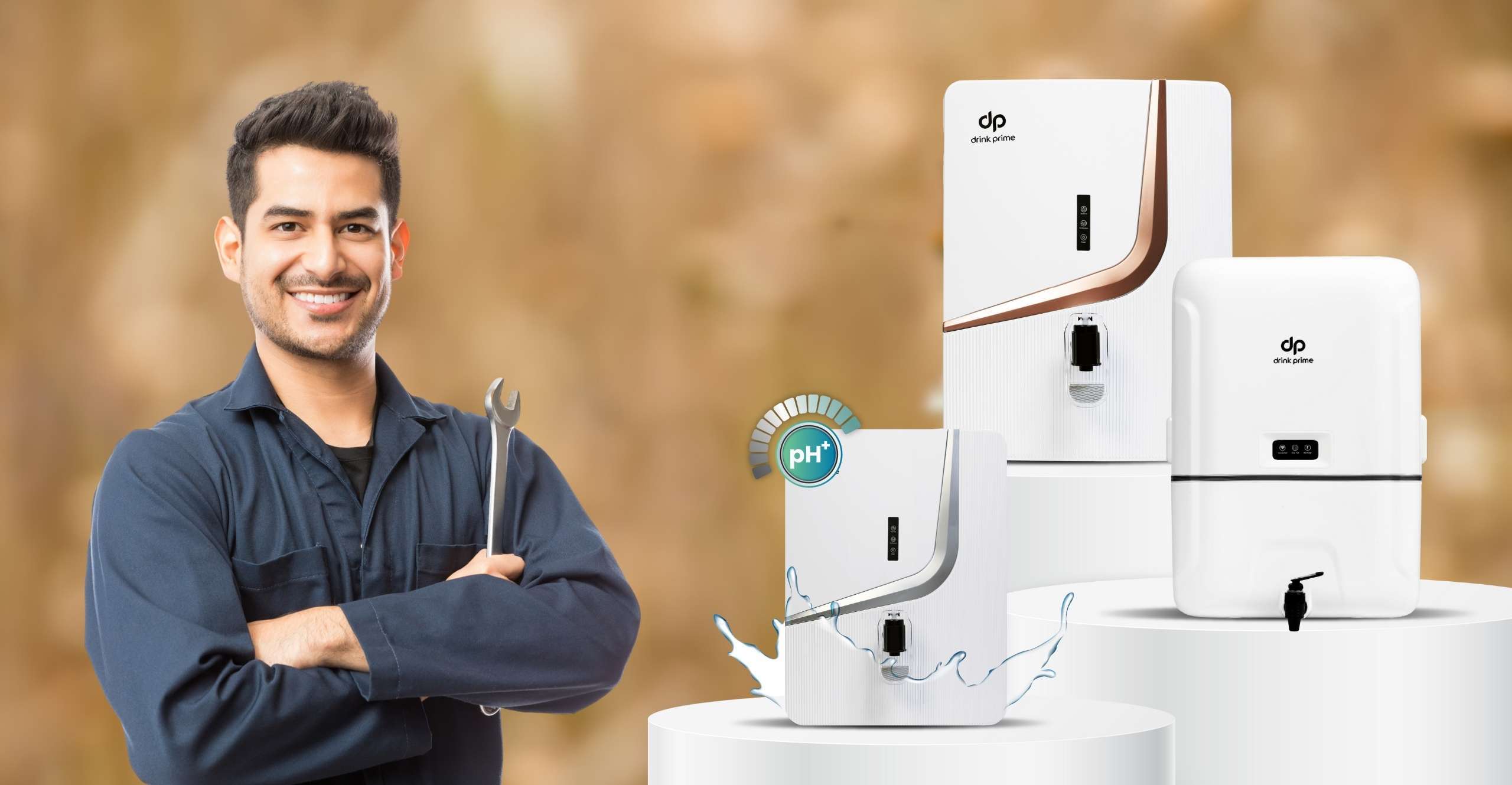Nowadays, we are all in a rush to adopt a healthier lifestyle, and clean drinking water is often the first and most important step in this process. However, not all water is created equally, especially in urban areas where water quality can vary significantly depending on the source. Also, a key indicator of water quality is the TDS level, or Total Dissolved Solids level. But have you ever wondered about buying a water purifier that is based on your TDS levels?
In this blog, we will understand how TDS levels in your water can help you decide whether you need a water purifier and which type is best suited for your home.
What is a Total Dissolved Solid?
TDS or Total Dissolved Solids, which are the combined content of all the organic and inorganic substances in water. Such solids include minerals, salts, and metals like calcium, magnesium, sodium, chloride, and sulfates. While there are some minerals that are beneficial for health, but excessive levels can be harmful to your health, safety, and even your appliances. Besides, TDS is measured in parts per million, and TDS level of 500 ppm in drinking water. However, many health experts suggest that TDS levels between 80 and 250 ppm are ideal for drinking, as they strike a balance between taste and mineral content.
When Should You Consider a Water Purifier?
Water Sources: Groundwater or Borewell
Much borewell water contains high TDS due to the presence of minerals and salts from soil and rocks. It depends on the region; groundwater can also be contaminated with industrial or agricultural waste. So, in such cases, TDS levels can go beyond 500 ppm, hence making purification a necessity.
If the Water Tastes Salty or Bitter
Besides, high TDS levels can affect the taste of water, which often makes it massively salty, metallic, or bitter. Also, a change in taste is a direct sign that your water may contain excessive dissolved salts or even chemical contaminants. An RO water purifier helps in improving taste and makes the water more palatable.
When There Are Visible Impurities or Stains
Besides, TDS doesn’t refer to visible particles, but high levels often correlate with several other issues like limescale buildup, cloudy water, or stains on utensils. These are the indicators that you need a more comprehensive filtration system.
Health Concerns or Sensitive Groups at Home
So, if you have children, elderly family members, or any individual with a compromised immune system at home, it is important to make sure that your water is not only fit for consumption but also has a balanced mineral content. Excessive fluoride, sodium, or nitrate levels can be particularly harmful to such groups.
Choosing the Right Purifier Based on TDS
Sometimes, selecting the right water purifier based on the TDS level in drinking water can be challenging. If the TDS level is less than 250 ppm, consider buying a water purifier with a UV lamp to disinfect the water without altering its mineral content. However, if the TDS level is between 250-500 ppm, consider an RO water purifier with a UV lamp to make sure that the water you consume is safe for drinking. Besides, if TDS is greater than 500 ppm, then it is suggested that you invest in an RO water purifier that has a TDS controller to reduce harmful substances while re-adding all the essential minerals that are required.
Why Choose DrinkPrime?
If you are unsure how to measure TDS levels or don’t want the hassle of selecting and maintaining a traditional water purifier, DrinkPrime is the right solution for you since it is tailored for urban living. DrinkPrime offers smart water purifiers on a subscription basis.
Real-Time Water Quality Monitoring
DrinkPrime water purifiers continuously analyse the water’s TDS and adjust the filtration process to offer optimally balanced water.
Customised Purification
Also, DrinkPrime’s technology adapts to local water conditions, making sure that your family always drinks water that’s safe, clean, healthy, and rich in essential minerals.
Free Installation and Maintenance
Besides, you don’t need to worry about the filter changes or any repairs, as DrinkPrime takes care of it.
Hence, DrinkPrime is especially useful for renters, students, and busy professionals who want high-quality drinking water without the headache of managing a traditional water purifier.
Summary
In conclusion, clean drinking water is necessary, especially when you are aiming for a healthier lifestyle. Additionally, by understanding your water’s TDS levels, you can make informed decisions about whether a purifier is needed and what kind will suit your household needs. Whether it’s removing harmful contaminants or improving the taste and mineral balance, the right water purifier plays a crucial role in safeguarding your family’s health.
But if you are someone who is overwhelmed by the choices or unsure of your water quality, then DrinkPrime is the best choice for the modern and hassle-free solution. With real-time monitoring, adaptive purification technology, and a convenient subscription model, DrinkPrime takes care of all. So, if you’re looking for a smarter and safer way to stay hydrated, start by checking your TDS and let DrinkPrime handle the rest.




